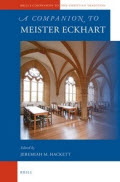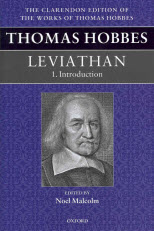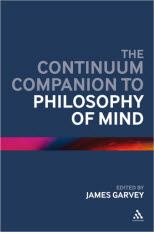CFA: Pittsburgh Summer Symposium in Contemporary Philosophy
Pittsburgh Summer Symposium in Contemporary Philosophy
Duquesne University
Dept. of Philosophy
Pittsburgh, PA
Call for Applications
We are pleased to announce the 2014 Pittsburgh Summer Symposium in Contemporary Philosophy, held at Duquesne University. Details for the program are as follows:
Formalism and the Real: Ontology, Politics, and the Subject
August 4 – 8, 2014
(Optional Participants’ Conference, August 2-3)
“The real can only be inscribed on the basis of an impasse of formalization.”
— Jacques Lacan, Seminar XX
“We need a theory of the pass of the real, in the breach opened up by formalization. Here, the real is no longer only what can be lacking from its place, but what passes through by force.”
— Alain Badiou, Theory of the Subject
Seminar Leaders:
Prof. Bruno Bosteels (Cornell University)
Prof. Tom Eyers (Duquesne University)
Prof. Paul Livingston (University of New Mexico)
Course Description:
Philosophy in the twenty-first century has seen an extensive reconsideration of formalistic methodologies and theoretical structures. This is heavily influenced by the formalism developed by a number of mid-twentieth century French thinkers who rejected humanist philosophies of experience or consciousness typified by dominant forms of existentialism and phenomenology. Insights derived from Marxism, Freudianism, and philosophy of science were argued to undermine central tenets of the latter, including the priority of description and the emphasis on first-person experiences. Rather, stress was placed on the priority of construction, an emphasis on the concept, and a rethinking of the nature of knowledge and the object of science.
The recent history of formalist approaches is framed in important ways by Louis Althusser and Jacques Lacan. As is well known, Althusser rejected historicist and humanist readings of Marx in favor of a structuralist approach, which was amenable to the conception of science developed by thinkers like Jean Cavaillès, Gaston Bachelard, and Georges Canguilhem. Simultaneously, Lacan rejected ego-psychological readings of Freud, forming interpretive, theoretical, and clinical bases for psychoanalysis that drew on Ferdinand de Saussure’s structuralist linguistics and Claude Levi-Strauss’s structuralist anthropology. This led him to a methodological formalism, particularly when addressing the Real and the psycho-dynamics in which it is involved. The presence of Althusser and Lacan at the École Normale Supériere during this time formed the intellectual milieu in which students such as Alain Badiou, Jacques-Alain Miller, Étienne Balibar, and Jacques Rancière would begin to develop their own thought. An important forum for this was the journal the Cahiers pour l’Analyse (1966-69). The current project to translate it into English has prompted a surge in research related to these themes. In the Cahiers, efforts were made to reconcile Marxist politics with a Lacanian account of the subject. Lacan’s notion of the Real was essential to this and, along with the other elements of his thought, came to be developed by Badiou to address political and ontological domains.
More recently, formalism in philosophy has expanded to address issues beyond these origins. For instance, formalistic reconstructions of Heideggerian and Husserlian thought have proved intensely productive and have problematized the opposition of philosophies of the concept to phenomenological philosophies. Moreover, recent efforts to address questions in aesthetics and politics with formal approaches has further expanded the boundaries of formalism’s theoretical scope. Paul Livingston’s book, The Politics of Logic: Badiou, Wittgenstein, and the Consequences of Formalism, examines the landscape of political criticism and change given the results and paradoxes of 20th century projects of formalization in mathematics and logic. Following this, his current project focuses on Heidegger’s philosophy, and will reexamine our inherited notions of sense and truth. After writing a book on Lacan’s concept of the Real, Tom Eyers has analyzed the intellectual foundations of structuralism in 1930s and 1940s French epistemology and philosophy of science. He is presently writing a book entitled Speculative Formalism: The Poetics of Form in Literature, Science, and Philosophy which will bring that work to bear on poetics and literary theory. In addition to translating Badiou’s Theory of the Subject and Wittgenstein’s Antiphilosophy, Bruno Bosteels has devoted numerous books to Badiou and issues in political thought. In his recent Marx and Freud in Latin America: Politics, Psychoanalysis, and Religion in Times of Terror, Bosteels investigates ways art and literature provide insight into processes of subjectification at the core of Marxist and psychoanalytic concerns.
This summer symposium will bring together interested graduate students, postdoctoral students, and junior faculty for a week of discussion, lecture, and close textual study. Together, we will pursue questions regarding formalism and its relation to the Real in contemporary ontology, politics, and theories of the subject and their consequences for understanding knowledge, history, state, language, art, and literature. Lacanian and Badiouian thought will form a key theoretical backdrop. Yet, we expect our studies will include work by a number of other figures, including Plato, Marx, Nietzsche, Frege, Freud, Heidegger, Wittgenstein, Lautman, Bachelard, Canguilhem, Althusser, Deleuze, Derrida, Macherey, Miller, Butler, Jameson, Žižek, Hägglund, and Malabou.
All texts and discussion will be in English.
Application:
We invite current graduate students, postdoctoral students, and junior faculty in philosophy or related disciplines to submit an application composed of a C.V. and a short letter of intent (500 words maximum) to pghsummersymposium2014@gmail.com. The deadline for applications is Friday, April 25th, 2014. We expect to respond with notifications regarding acceptance to the symposium by Thursday, May 1st, 2014 to help facilitate summer plans. The seminar will be limited to 30-40 participants. For more information as it becomes available, we have created a website for the symposium: http://pghsummersymposium6.wix.com/pghsummersymp2014
Participants’ Conference (August 2-3):
In order to facilitate a further exchange of ideas and research, a participants’ conference will be held the weekend before the seminar begins. Applicants who receive notice of acceptance as participants will be asked – if interested – to submit an abstract of up to 500 words on any theme related to the topic of the seminar. The participants’ conference will take place on Saturday and Sunday, August 2-3, 2014.
Financial Information:
There will be a $200 registration fee for each participant of the seminar. This money will be used for event expenses like a conference dinner, celebration, daily coffee, etc. Please note that participants will be responsible for arranging their own housing as well as financing most of their own meals for the duration of the symposium. However, with respect to lodging, we expect a limited number of arrangements with graduate students will be available on a first come, first serve basis.
Organizers:
| James Bahoh
Dept. of Philosophy Duquesne University bahohj@duq.edu |
Martin Krahn
Dept. of Philosophy Duquesne University krahnm@duq.edu |
Jacob Greenstine
Dept. of Philosophy Duquesne University greenstinea@duq.edu |
Dave Mesing
Dept. of Philosophy Villanova University dmesing@villanova.edu
|













